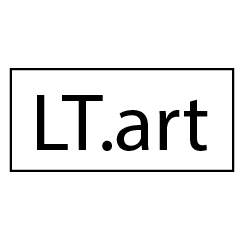EXPOSING NATIONAL IDENTITY
Moderator: 𝐾𝑎𝑟𝑜𝑙𝑖𝑠 𝑉𝑦𝑠̌𝑛𝑖𝑎𝑢𝑠𝑘𝑎𝑠 - podcast host and producer - https://nara.lt
Panelists: 𝐶𝑜𝑟𝑛𝑒𝑙𝑖𝑢𝑠 𝐻𝑒𝑙𝑙, 𝐿𝑖𝑒𝑝𝑎 𝐾𝑢𝑟𝑎𝑖𝑡𝑒̇, 𝑃ℎ.𝐷.𝑅𝑜𝑚𝑖𝑛𝑎 𝐴𝑐ℎ𝑎𝑡𝑧
𝐶𝑜𝑟𝑛𝑒𝑙𝑖𝑢𝑠 𝐻𝑒𝑙𝑙 - author, translator, literary critic, and essayist. After studying German and theology, he was a lecturer for German language and Austrian literature at the University of Vilnius from 1984-1986, afterward worked at the universities of Salzburg, Vienna, and Klagenfurt. Cornelius Hell is the author of more than 200 programs for ORF and Bayerischer Rundfunk; jury member of the ORF's Best List and a regular contributor to the magazine Literatur und Kritik; translator from Lithuanian (prose, poetry, and drama).
----------
𝐿𝑖𝑒𝑝𝑎 𝐾𝑢𝑟𝑎𝑖𝑡𝑒̇ is a musician and an artist from Eastern Europe, currently residing in Graz, Austria. She co-founded the international band Petrol Girls (posthardcore/feminist punk) where she co-wrote, played bass guitar and sang until recently. Liepa is also a visual artist combining disciplines such as creative coding, technology and fine arts as well as being an active part of local activist communities when she's not travelling with her creative projects.
----------
𝑅𝑜𝑚𝑖𝑛𝑎 𝐴𝑐ℎ𝑎𝑡𝑧 is a filmmaker, artist, writer and radio journalist. She obtained her Ph.D. (Doctor of Philosophy) in cultural studies. Since 2017 she produces the podcast and radio show FEM*POEM that holds space for the beauty of literature, activism, body politics, queerness and feminism. Her latest documentary Bare Life that won an award at an International Filmfestival for Human Rights deals with homelessness and opens unuttered a wide range of necropolitical questions at are corporeally urgent these days.
Discussion:
IDENTITY, the theme of this year's festival, invites us to discuss how time, place, social structures and language influence our perception of who we are.
In the panel discussion, we will narrow down the topic of IDENTITY and primarily touch on what is associated with the notion of national identity.
In modern day Europe, the question of national identity is a widely discussed topic. One can be confronted by a very distinct understanding of what national identity means, how it is perceived and what emotions it evokes. Often associations with national identity come from fears and stereotypes formed among diverse groups of people, such as:
- The rise of populism in Europe strengthens national identity which leads to people to separate everyone into groups of “us” and “them”. The question raised is whether identity can exist without exclusion, putting one's nation above others, escaping the “us” vs.“them” concept.
- Keeping in mind globalization, technological development, and growing mobility, many might claim that their identity is no longer limited to a particular nation and it is becoming irrelevant to an individual’s self-perception. This leads many countries to take actions of “preserving” national identity, instead of focusing on the complex modern identity with pride and respect for all individuals.
Aside from a wider discourse on national identity, we would like to look a bit deeper at how historical, cultural and political idiosyncrasies of society create different perspectives of national identity.
“Your country may be the most precious to you, but that doesn't mean it is the best.” - Irena Veisaitė

